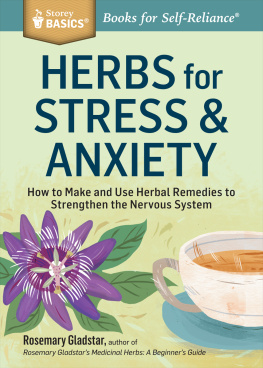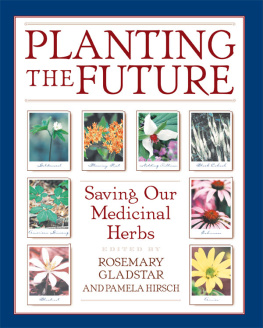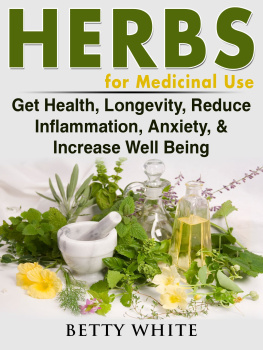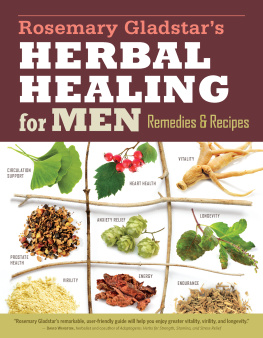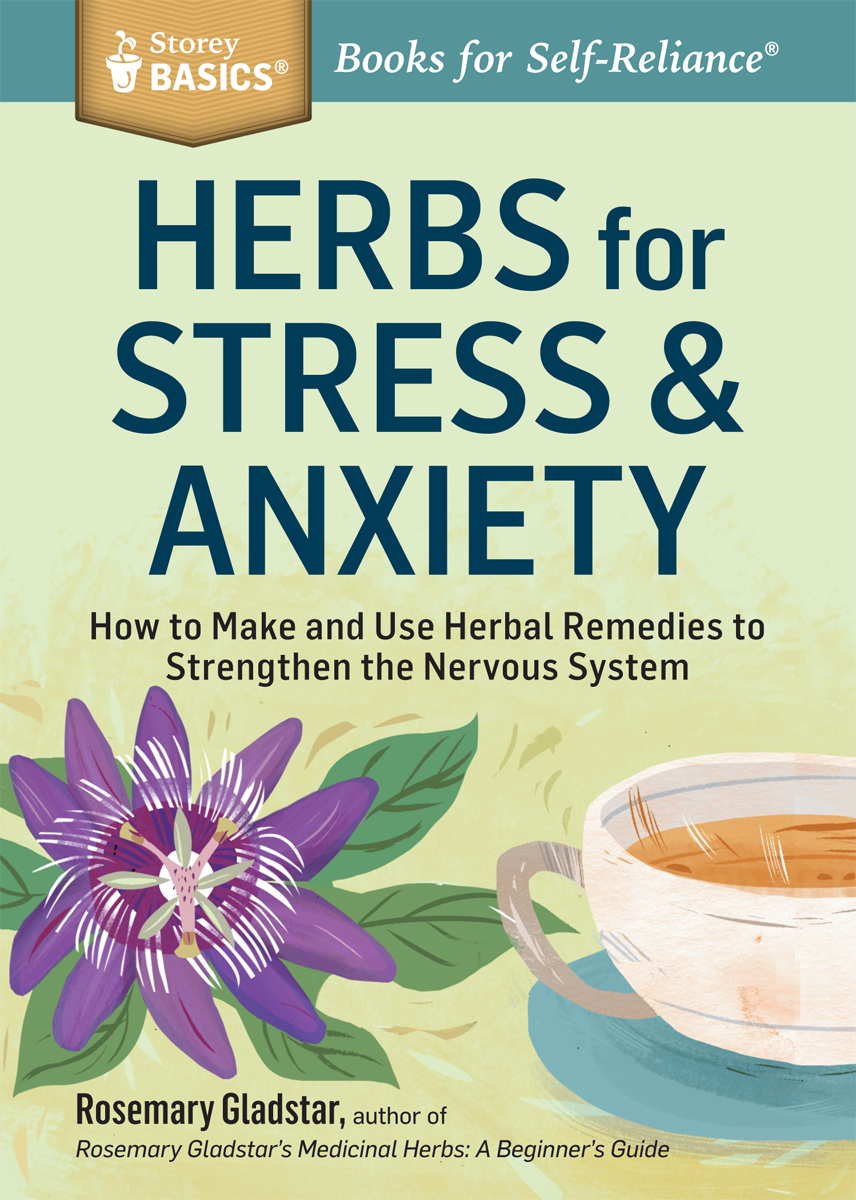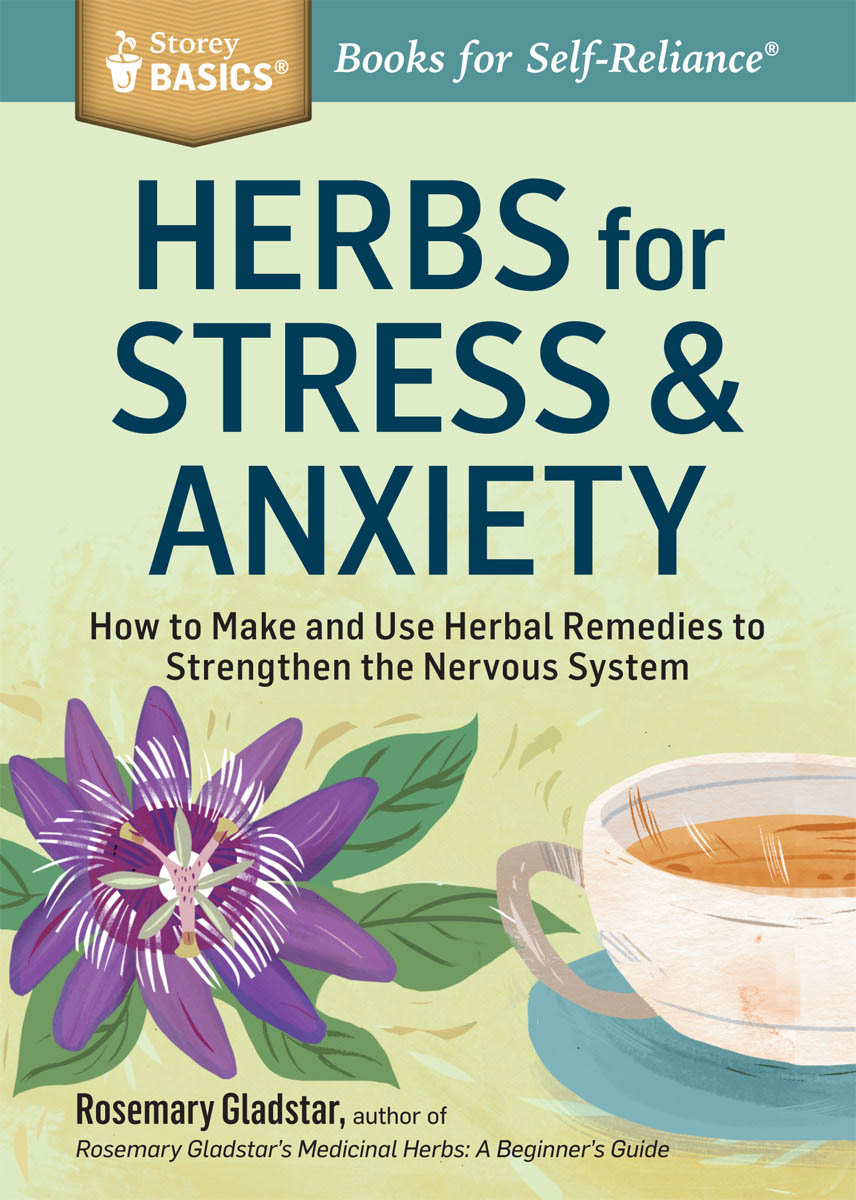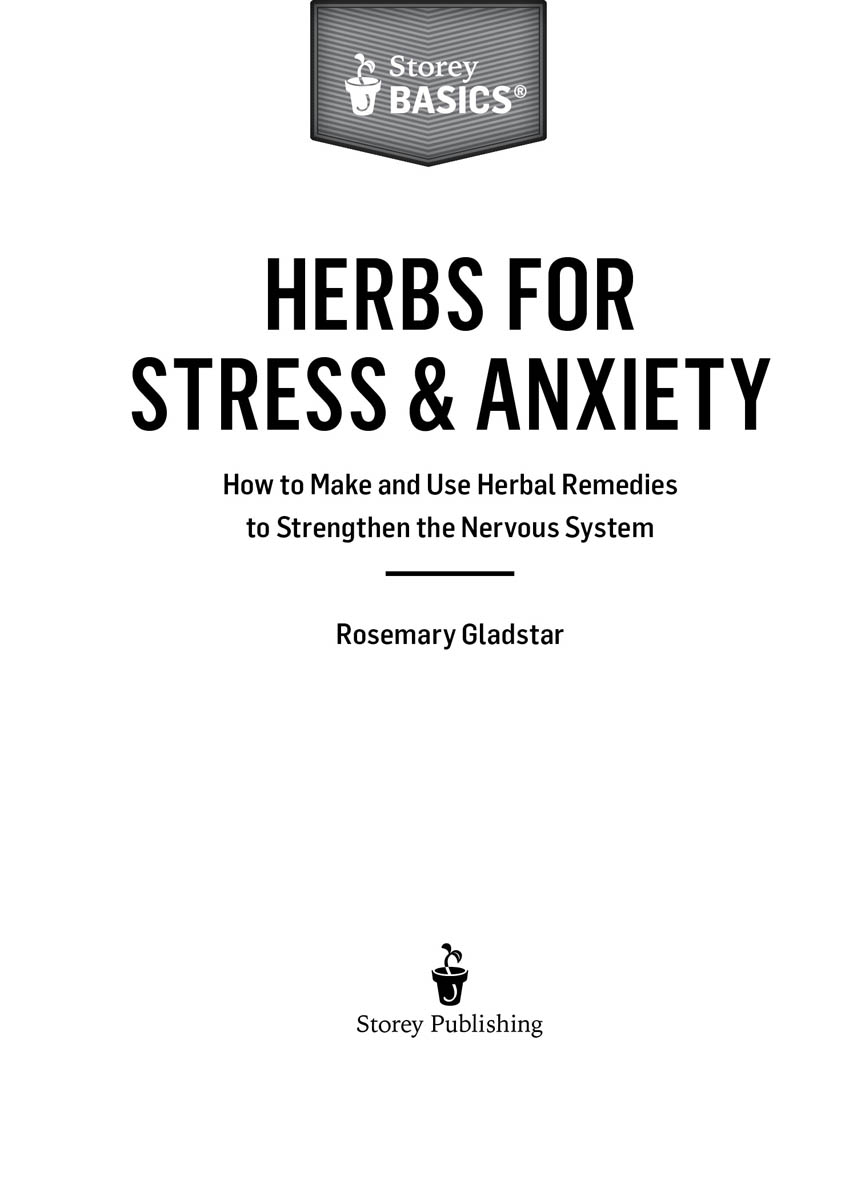Contents
My life centers around 500 acres on a mountaintop in the northeastern part of Vermont. There are endless helping hands that make it all possible: the gardens, the trails, the small orchard, the beehives, the woodlands, the wildflower meadows, and an office that hums continuously, a hive of happy activity. There are so many people who have helped over the years, but a few people who have always been there, helping with their hearts as well as their hands. This book is dedicated to them: Robert Chartier, Jason Colvard, Melanie and Jeff Carpenter, Jennifer Temenski, Micki Visten, Amy Goodman Kiefer, Donna Bryant Winston, Katie Pickens, and Matthias and Andrea Reisen.
Acknowledgments
I am sincerely indebted and grateful for the infinite support and hard work of my editor and friend, Deborah Balmuth. Her patience and caring have sustained me through endless deadlines amid a schedule that was nothing less than chaotic. Due to her understanding, the help of my favorite nervine teas, and the view out my office window, Im alive and well at the end of another writing odyssey.
Introduction
Do you recall the last time you felt really peaceful? When you felt truly, profoundly calm and content? When you woke up smiling and the world smiled back? Can you say that you have ample time for social events, get everything done in a day that you wanted to, and feel like your to do list is under control? Do you sleep deeply and soundly, so that waking up is a joy, not a chore?
If youre like most of us, these feelings are pleasant but fleeting experiences or even distant memories. Far too many of us live in a state of recurrent or chronic stress and anxiety. Were overscheduled with work and family obligations, oversaturated with information, overwhelmed with social and personal expectations in short, overloaded. The natural response to that overload is stress and anxiety. And for many of us, chronic stress and anxiety lead down a precipitous path to depletion, chronic fatigue, illness, and depression.
People have always experienced stress and anxiety. These important biological responses are warning signals designed to alert us of possible danger that fight or flight response so essential to survival. However, we have only to look at the staggering number of nervous system disorders in our population today to sense the magnitude of the problem of living under a constant onslaught of stress and anxiety.
Modern medicine offers a variety of treatments for the symptoms of excessive stress and anxiety, which range from depression and insomnia to muscle tension, cardiac irregularities, and gastrointestinal distress. However, it places little emphasis on the need to build a strong and resilient nervous system. It may not always be possible to make our lives or the world around us less stressful, but we can create greater peace and inner calm by changing how we respond to stress. Herbs, exercise, healthy eating habits, meditation, and cultivating healthy relationships can all fortify our nervous system and help correct any underlying imbalances. As gentle, effective therapies, these practices are well suited to relieving the symptoms of stress and anxiety and building a more resilient, adaptable nervous system. And when a serious, chronic disorder necessitates pharmaceutical intervention, these natural therapies can play an important adjunct role in helping restore balance and harmony.
This book outlines the simple steps Ive found to be helpful in relieving stress not only in my own life, but in the lives of hundreds of other people as well. Stress is a fact of life, neither good nor bad; its how we respond to it that matters. And how we respond to stress is vitally dependent on the health and resiliency of our nervous system. Greater joy is the goal!
Chapter One
Understanding the Nervous System
Stress can be anything from the lash of a whip to a passionate kiss.
Hans Selye
The nervous system (NS) is our link to our environment. It has three basic functions: to receive, to interpret, and to respond. Within the limited paradigm of modern Western science, nervous system function involves only our physical being. We have countless sensory neurons that allow us to experience our external environment and monitor our internal environment. Then there are the 12 billion or so cells that constitute our brain, the central computer of the body.
That alone would make the nervous system the most important system of our body. It is what provides integration and coordination to our lives. It allows us to see, feel, touch, act, and react. To the degree that it is impaired, the quality, tone, color, and richness of life are diminished.
But the nervous system serves in a far greater capacity than just the physical quarterback of our body. It is that place where life itself, conscious self-awareness, attaches to the physical vehicle and converts the puppet into the puppeteer. It is the interface where we can dream, think abstractly, create, and receive intuitive impressions. It is our primary connection to Universal Consciousness, or the divine in all of us.
The Final Frontier?
Western scientific culture has shed great light on the workings of the human entity and the disease processes that affect it. However, many frontiers in medicine continue to baffle the most ardent of researchers. As we discover more answers we are confronted with even more difficult questions.
The continuing exploration of the biological sciences provides us with a gross understanding of the human body and how it interacts with its environment. This progress has carried us to the exploration of ever more subtle areas of human metabolism. In these more elusive areas the psychologist, the physicist, the microbiologist, the physiologist, the biochemist, and others must combine their thinking to push back the boundaries of our understanding. The foremost physicists of the world are now adding mystics and metaphysicians to their think tanks because particle physics has revealed that, no matter how much you dissect and reduce something, you cannot get to an understanding of the whole by learning only about its tangible physical parts.
Interpreting the Signals
This, in part, is why the nervous system is such an exciting aspect of humankind. We cannot understand consciousness by dissecting a brain, or how logical, rational thought occurs, or, even more baffling, how creative ideas spontaneously form in our minds.
Though it can be demonstrated which autonomic nerves control which involuntary body functions, how neurochemical transmitters function and which sites they target, and what part of the brain controls these processes, can anyone explain where the original awareness occurs that understands the need to send the message in the first place? And how does this awareness transmit its desires or needs to the physical brain so the impulses can be sent?
We dont even really know what pain is, or why similar impulses can be interpreted as either pain or ecstasy. Nor can we define and explain emotions and feelings, where they originate, and the effects they have on our systems.
Why does the heart keep beating and the breath continue to flow without our conscious intervention? And what causes them to eventually stop these functions, likewise without our apparent conscious intervention?

